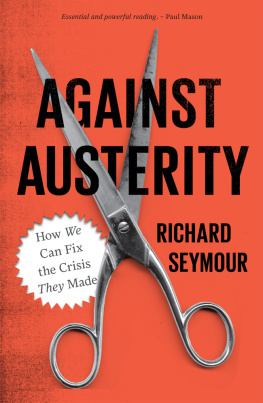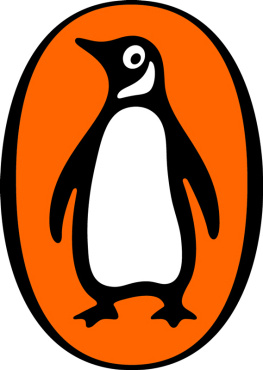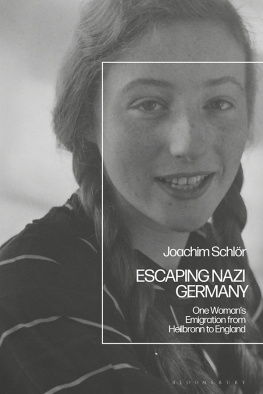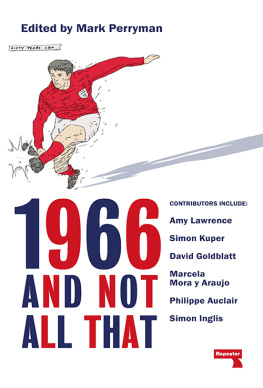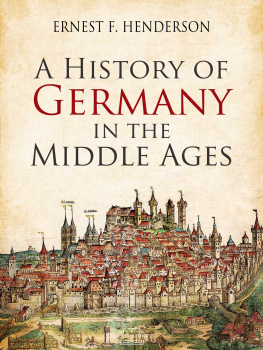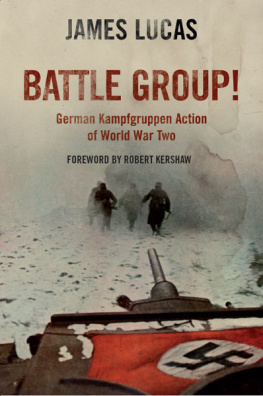ACKNOWLEDGEMENTS
I wish to thank Her Majesty the Queen for graciously permitting me to quote from letters in the Royal Archives.
My thanks are deeply felt. So many friends and strangers and colleagues have given me thoughts, ideas, papers, photographs, access to private collections. I have listed everybody I can find in my records of letters, texts, emails and conversations, but I fear I will have omitted many who were just as kind, patient and encouraging as those listed below. I could not have written this book without you all. Your support, suggestions and contributions have been constructive, cheering and immensely helpful.
Here is a list, then, that doesnt begin to be comprehensive, and isnt even alphabetically in order how could I put such a heartening enthusiast as Benjamin Zander at the end of a list?
I would, however, like to say special thanks to two neighbours: Kevin Brownlow, across the street, was marvellously generous in sharing some of the treasures of his collection, and in giving me ideas. Alice Sommer Herz, who knew Kafka when she was young, and who is still, aged 108, playing the piano, was inspiring not only because I could hear her piano every time I walked out along the street and round the corner, but because of the magnificent optimism that she has displayed throughout her life, and in circumstances that few could have endured with such courage.
Among the many who loaned papers, diaries and memoirs, the first and perhaps the most welcoming of them all was Mariette Saye at Broughton Castle, whose portrait of her splendid forebear, Sir Maurice de Bunsen, looked down on me as I read among other absorbing diaries and letters from a remarkable family his wifes account of the last days in Vienna, before the war. Margreta di Grazias thoughts on Shakespeare and Germany proved of inestimable value; I wish that the lovely woman for whom both she and I feel such admiration, Inga-Stina Ewbank, were still alive to offer her comments on this book. Inga-Stina was my tutor at Bedford College. She taught me how to study and also how to write. I owe her so much.
My gratitude to my family is profound. Above all, thank you to my mother, my brother, and my beloved husband, Ted Lynch, whose steadfast encouragement, close reading and wise advice have meant so much.
At Simon and Schuster, I am grateful to a magnificent team. Mike Jones, Briony Gowlett, Hannah Corbett, Karl French, Juliana Foster, Clare Hubbard and Marie Lorimar have looked after me and the book with an enthusiasm and care that was so much appreciated. My agents, Anthony Goff and George Lucas, have been wonderful, as have the matchless and patient staff at the London Library.
Thanks are also due to Peter de Bunsen; Piers Brendon; Nicholas Clark (Britten-Pears Foundation); Laura Bell; John Searby; Peter Mnder; Bruce Arnold; Kate Crowe at the Foreign Office (for an unforgettably thrilling tour of the Locarno Rooms); Mary Ashtown; Harold and Sally Atcherley; Heather Dean at the Beinecke Library, Yale; Rufus Albemarle; M. A. B. Mallender; Frank Akers-Douglas; Michael Bloch; Susie Buchan; Ronald Barker; Ariane Bankes; the late Mrs George Budd; Robert Beavers; Dr Matthias von Bismarck-Osten; Friedrich-Karl von Bismarck-Osten; Frederick Stdemann; Ann and Hugh Buchanan; the archivist at St Barts Hospital; Angela (Schulenburg) Bohrerand Karl Heinz Bohrer; Frank Barratt and Wendy Driver at the Mail on Sunday travel pages; George St Andrews; Sylvana Tomaselli; Rupert Christiansen; Pat Barker; Tim Schroder; Roy Foster; Donald and Diana Franklin; Sarah Ducas; Victoria von Preussen; Pam Sebag-Montefiore; Hugh Geddes; The Rt Hon Ken Clarke; The Rt Hon William Hague; Christopher Bielenberg; Nicholas Bielenberg; His Excellency, the German Ambassador, Georg Boomgarden; Paul Smith at the Thomas Cook archive; April Crowther; Griselda Cuthbert; Ariel Crittall; The Dowager Duchess of Devonshire; Warner and Fiona Dailey; Athena Dormer; Dorothea Depner; Richard Davenport Hines; Susan Elliott (at the family archives of Philip Lothian); James Fox; Helen Bailey and Jan Brookes at Blickling Hall; Jamie and Maggie Fergusson; Astrid Forbes; Tana Fletcher and also Sir Edward Goschen; Edgar Feuchtwanger; Fred Smoler; Adelheid (Schulenburg) Gowrie and Grey Gowrie; Miko and Dorothee Giedroyc; Euan Geddes; Etka Green; Julian and Dagmar (Langbehn) Grenfell; Lady Garvey; Flip Gibbons for translating help; Hazel Howard de Walden and Joseph Czernin; Stewart Howson; Victoria and Miles Huntington-Whiteley; Roland Hill; Gary Haines at Tower Hamlets Archives; Richard Heygate; Caterina (Hoyos) Schneemann, Jonathan Steinberg; Selina Hastings; Dr Ernst and Baroness Brigitte Jung; Rachel Johnson; Jess at the German Hospital; Sir Ian Kershaw; Griselda Kerr; Judith Kerr; Dorna Khazeni; John Koch; Lady Rose Lauritzen; Jeremy Lewis; Benedict Flynn; Elizabeth Lowry-Corry; Michael Lothian; Eduardo Graf Lichnowsky; Lord Moyne; Benjamin Zander; Nicholas Mosley; Charlotte Mosley; Jeffrey Manton; Albrecht von Moltke; Helmut von Moltke; Duncan Maclaren; Father Heinz Medoch; Professor Stefan Muthesius; Edward Maze; Penelope Sitwell; HRH Landgraf Moritz and also Professor Eckhart G. Franz at the archives of the House of Hesse; Fiona Maddocks; Professor Onora ONeill; the late Dowager Duchess of Northumberland; David Pryce Jones; Angelika Patel; Cajetan Pfetten; Panikos Panayi; Peter Parker; Simon and Beate Reynolds; Dr Petra-Utta Rau; Frances Russell; Adam Ridley; Elizabeth Ruger; James Sempill; Chris Schuler; Adam Ridley; Barbara von Freitag; Raymond Salisbury Jones; Mrs Berkeley Stafford; the staff of the Bushey Museum; Andrew Sinclair; Noel Toone and Robert Tickle at Pitsford (Northamptonshire Grammar School); Patrick Stauffenberg; Kirsty Hardie; Graeme Segal; Alexander Waugh; Daniel Snowman; Canon Stephen Trott; the late Daphne Tennant; Karina Urbach; David Irvine; Caroline Gathorne-Hardy; James Stourton; Eva (Steinecke) Tucker, Felix Gottlieb; Meike Ziervogel of the splendid Peirene Press, specialising in translations of German masterpieces to English readers.
A special thank you goes to Hilary Spurling for the confidence she expressed in this large project at a time the many times when my heart was in my boots. Those encouraging words kept despair away on many occasions.
The help I have received, on every level, (including that of Friederike Powles, my patient German teacher), has been prodigious and heart-warming. I am particularly grateful to all the delightful guides in Germany who showed me the towns, villages and landscapes that they know so well.
All mistakes are, of course, my own.
AFTERWORD
Growing up in an isolated house in the Midlands in the late fifties and early sixties, I didnt give much thought to Germany. My father had never seen action in the war; my mother didnt talk about the experiences of a seventeen-year-old private working in Plymouth and Bath, both of which cities were heavily bombed, the latter on what were called the Baedeker Raids. (Historic cities targeted in reprisal for the 1942 bombing of Lubeck were York, Bath, Norwich and Exeter; Canterbury was later bombed in reprisal for Cologne.)
I dont recall when I first learned that my German aunt, Irene Harrach, had spent the first few years of the war living at my grandfathers Welsh home, Chirk Castle, and working with evacuees, before she moved closer to London, renting a house near Godalming. Theres a family story that Irene, who was both engaging and extremely pretty, was given a hotline on which to call Winston Churchill if she ever ran into difficulties. I sometimes wonder if my mother left Chirk to sign up at such an early age (she turned eighteen in 1940) because she found it difficult to live alongside a German sister-in-law. If she did, shed never say.
Last summer, we found, immaculately preserved, the gramo-phone records that my Aunt Irene (Nucci to everybody who knew her) had brought over from Munich when she married John. We listened to her favourite German group, the Comedian Harmonists, as they sang, in sweet but melancholy harmony, Tea for Two and Night and Day: perfect for a thirties foxtrot at the elegant Vier Jahreszeiten Hotel in Munich, back in 1934. But in 1939, Nucci stacked her record collection of 78s away in an attic. Her daughters dont remember hearing them played. They did, however, hear Nucci talk about growing up in Florence and how much she loved her later life, when her parents settled in Munich. Aged twenty in 1955, Irenes eldest daughter went out to Munich to study photography and discovered a city in which she, like her mother and father before her, felt instantly at ease.




